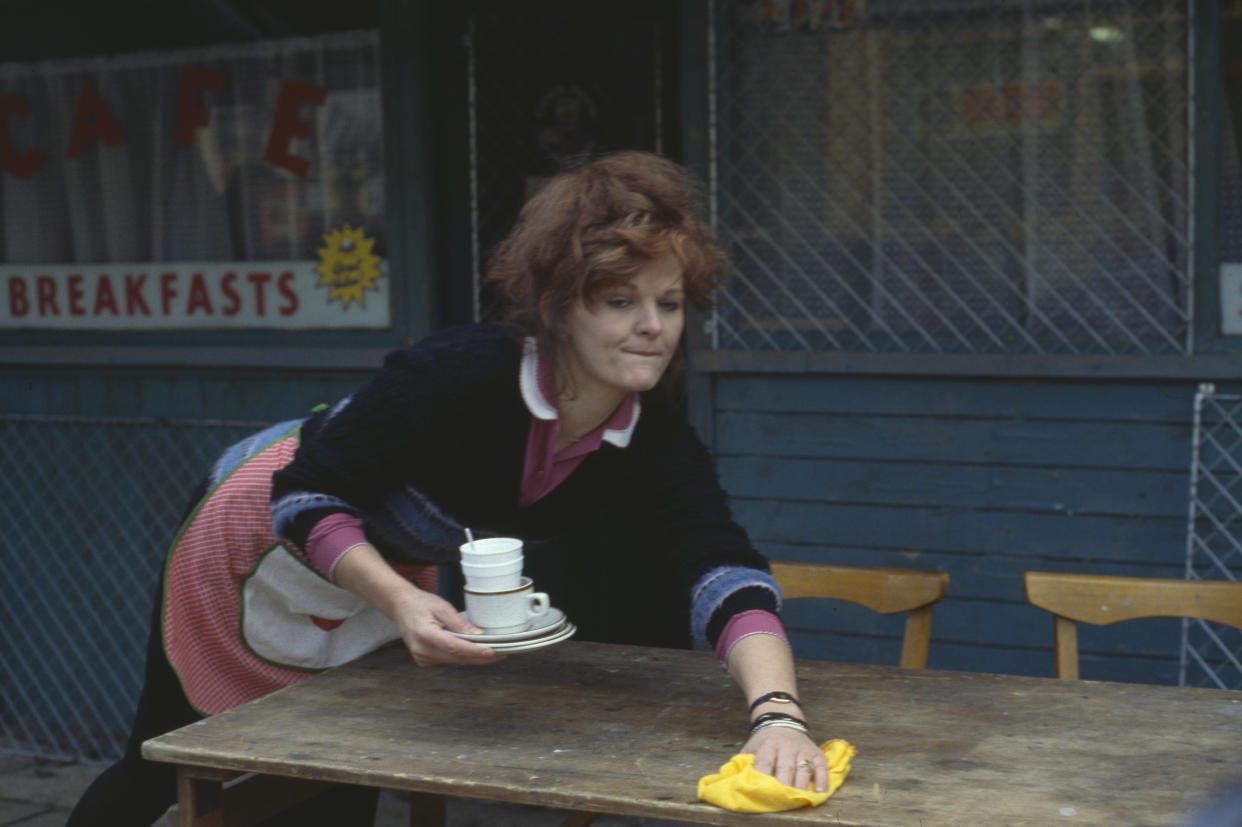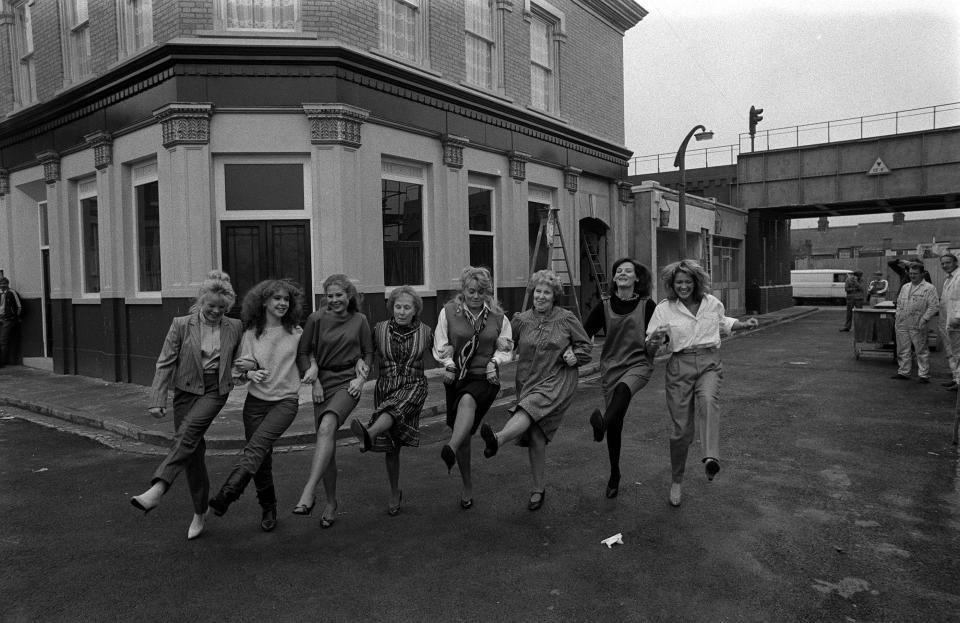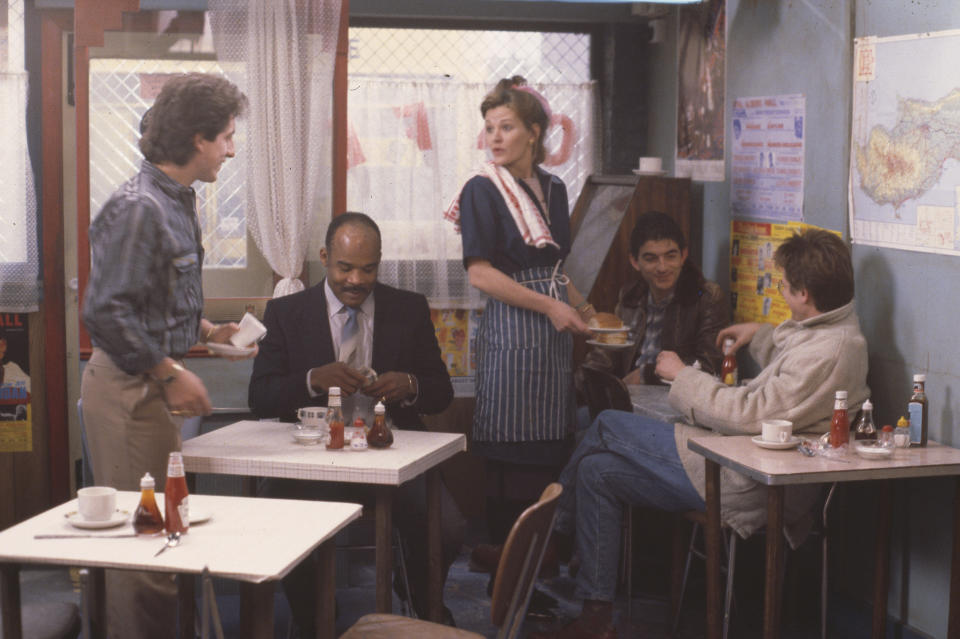Ex-EastEnders star Sandy Ratcliff died as a result of accidental morphine overdose and lung conditions

Alexandra “Sandy” Ratcliff died earlier in April aged 70 after taking an excessive amount of morphine while suffering from two terminal lung conditions, an inquest has heard.
She was one of EastEnders’ original cast members, appearing as cafe owner Sue Osman between 1985 and 1989.
However, off screen she battled a heroin addiction for about 20 years, an inquest at Poplar Coroner’s Court heard.
She died alone in the bedroom of her sheltered housing accommodation in Stoke Newington, London, on April 7 2019.
The inquest heard that she had been discharged from hospital the day before and given morphine for pain relief.

Her cause of death was given as bronchopneumonia and morphine toxicity as a result of a malignant lung tumour and chronic obstructive pulmonary disease (COPD).
Her son, William Palmer, said his mother suffered three strokes in the years leading up to her death – the first taking place shortly after her partner died in 2013.
Read more: Daniella Westbrook reveals plans to become a therapist
Palmer said the stroke had left her with pain in her left arm, for which she was prescribed codeine.
But the inquest heard that Ratcliff would take more than her prescribed amount for both pain management and “recreational use” and at one point was taking 100 tablets per week, before it was reduced to eight, the inquest heard.

Her GP, Dr Helen Freeman, said: “The difficulty with chronic pain is that it is difficult to manage with opioids and she was taking these at higher levels.”
Dr Freeman said Ratcliff was aware she had a malignant tumour after being diagnosed in 2014 then in October 2018, her condition started to worsen and by February 2019 she had started coughing up blood.
Giving evidence, Dr Freeman said Ratcliff was seen on numerous occasions by GPs in early 2019, but declined admission to hospital.
She added that she had visited Ratcliff on March 18 and told her “she could be dying and was fatally unwell”.
The inquest heard that Ratcliff was eventually convinced to go to hospital by her carer and was treated for a lung infection before being discharged from hospital on April 6 and her codeine was switched to morphine.

But the following morning, her carer went into her bedroom and found Ratcliff unresponsive before she was declared dead at 8.17am by paramedics.
Pathologist Alan Bates said the level of morphine found in her blood was within the therapeutic range, although he added: “There is a danger as morphine is a respiratory depressant there is a greater danger of overdose when there is significant natural lung disease.”
Coroner Mary Hassell concluded that Ratcliff was “near to the end” when she was admitted to hospital.
She said: “I don’t think the morphine was used to end her life. She was using it as she had used drugs for many years.
“She died from a combination of two naturally occurring terminal conditions and an excess of morphine.”
With reporting by PA.

 Yahoo News
Yahoo News 

